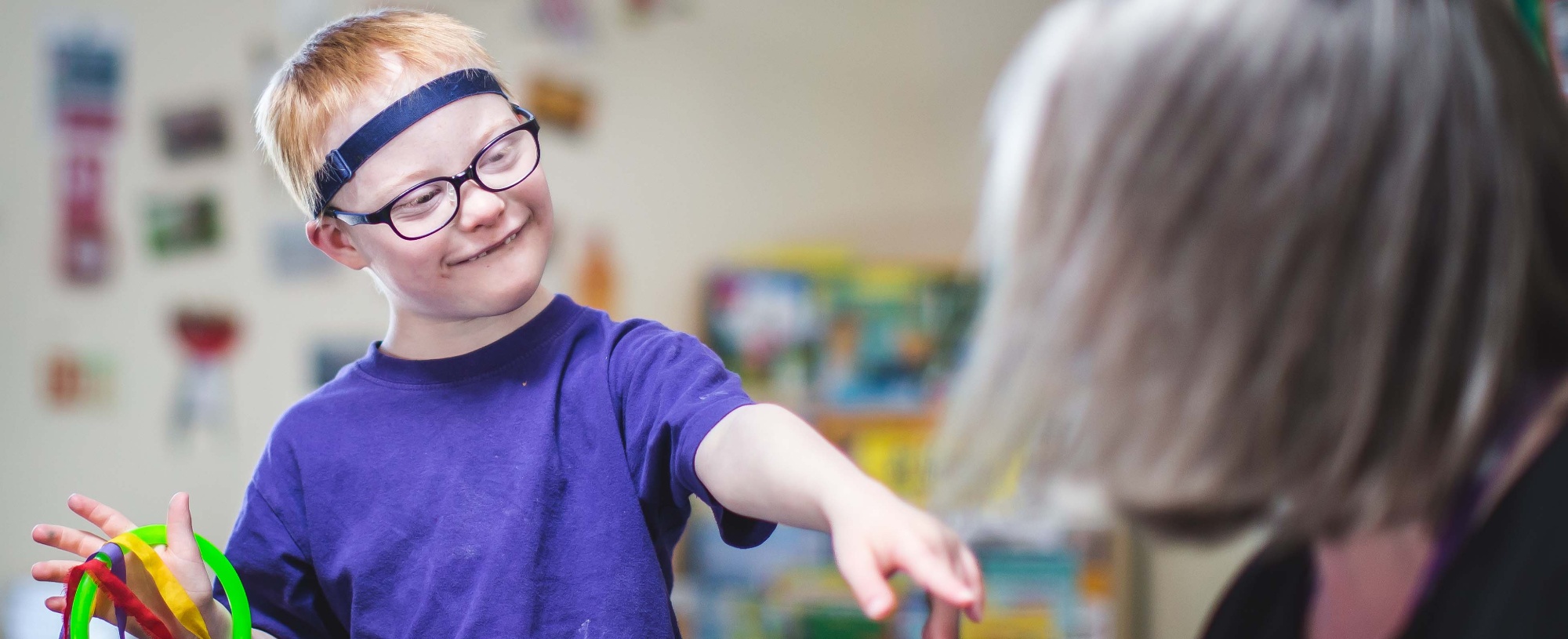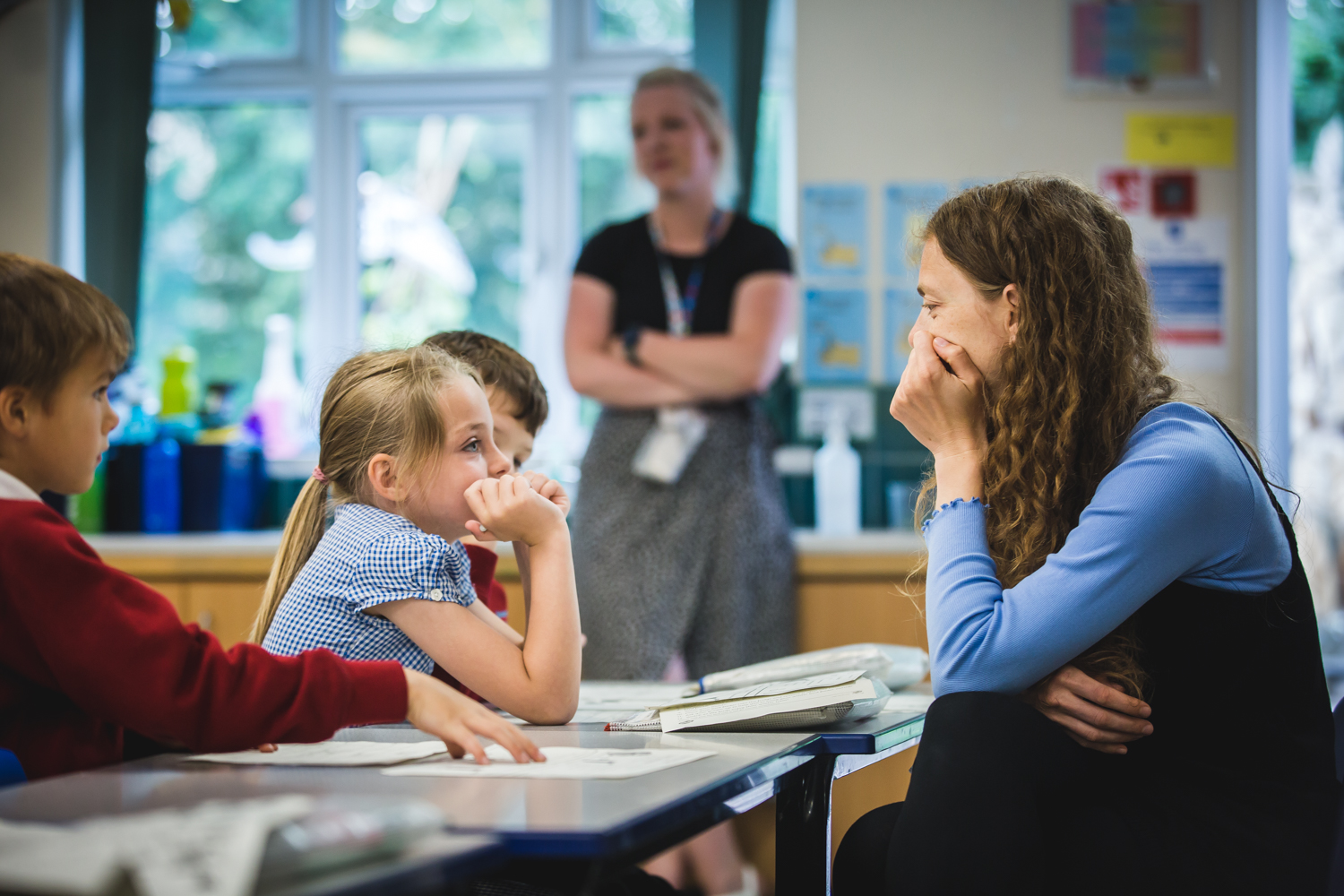"Inclusion isn’t a separate strand of work – it is the work..."

Anthem's Head of Inclusion and SEND, Kelsey Clark-Davies, leads the trust’s vision for inclusion with a firm belief that every child deserves to feel a deep sense of belonging in their school community. With decades of experience spanning mainstream, specialist and alternative provision, as well as managing local authority SEND provision, Kelsey has dedicated her career to creating environments where all children, regardless of their starting points, can thrive.
 Kelsey writes...
Kelsey writes...
Inclusion isn’t just about policy or provision; it’s about relationships and culture. It’s about ensuring that every child, parent, carer and member of staff feels a sense of love, place, and belonging. Too often, relationships in schools have been considered an afterthought – something 'nice to have' but not central to the core business of education. But what we know, and what neuroscience reinforces, is that strong relationships are fundamental to learning. When students feel safe, valued, and connected, their brains are in the best possible state for learning.
This understanding underpins the Anthem Relational Approach, a trust-wide strategy that embeds relational thinking in every aspect of our work. It’s about creating psychologically safe environments where students can thrive academically, socially, and emotionally. Inclusion isn’t just something we do in the classroom; it’s a culture that must be reflected across the entire organisation - from teaching and learning to leadership, from finance teams to catering staff. Every interaction has the potential to contribute to a more inclusive environment, and in turn, support outcomes for students.
Understanding the deep connection between behaviour and belonging is key to our approach. When children feel like they belong, their behaviour reflects that sense of security. I have witnessed this first-hand throughout my career, and research from organisations like the Education Endowment Foundation (EEF) backs this up. Attendance, attainment, and wellbeing all improve when children feel they are truly part of their school community. That’s why we have introduced the Thrive Approach across Anthem, embedding a deeper understanding of neuroscience, along with child development theory, trauma and attachment, and how this links with the learning process.
Kelsey's career has taken a winding path, but every step has reinforced her commitment to inclusion.
I started out working with children with disabilities and special needs in an adventure playground in London before training as a teacher in Camden. From there, I moved into alternative provision, working with children who had been excluded from school, many of whom had experienced significant trauma. I spent 12 years leading specialist settings for children at risk of, or experiencing, exclusion, developing multi-agency teams that brought together educational psychologists, youth workers, social workers, and family therapists. These holistic approaches delivered transformative outcomes for children and their families.
Alongside my work in education, I trained in psychotherapy, which has given me an even deeper understanding of the emotional and psychological factors that shape children’s experiences in school. This perspective has been invaluable in shaping inclusive practices that recognise the whole child, not just their academic needs, as well as influencing my approach as a leader.
Before joining Anthem, I led system-wide inclusion and safeguarding work as Head of Education Safeguarding and Inclusion for a local authority with over 200 schools. In this role, I was responsible for everything from attendance and elective home education to school safeguarding teams and all aspects of inclusion. This meant leading the work of educational psychologists and specialist teachers and overseeing all education, health and care plan (EHCP) processes, giving me a deep understanding of the challenges faced by schools and local authorities in balancing high-quality provision with the realities of SEND funding pressures. But despite the breadth of that role, I missed being directly involved with schools. That’s why I made the move to Anthem – to work nationally, driving inclusion in our schools while staying closely connected to the realities of school life.
What excites Kelsey most is seeing this approach take hold in our schools.
Inclusion isn’t a separate strand of work – it is the work, intrinsically woven throughout our education strategy. As we continue to develop our Anthem Relational Approach, we are building a culture of deep connection, understanding, and empathy across the trust.
Every part of our organisation is aligned with the vision of making every child feel seen, heard, and valued. It’s this culture that sets Anthem apart as a leader in the field, driving real change and inspiring us all to contribute to the positive, inclusive future every child deserves.









